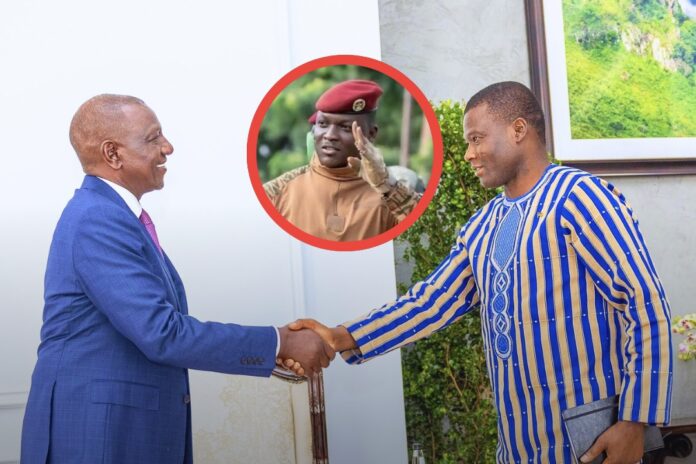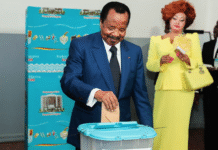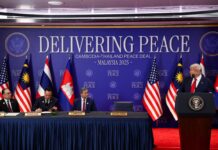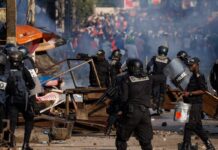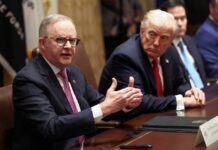President William Ruto on Saturday received a goodwill message from Burkina Faso’s transitional leader, Captain Ibrahim Traore, delivered by Oumarou Yabre, President of the National Council of State Security, at State House Nairobi.
Also present was Director-General of the National Intelligence Service, Noordin Haji.
While the diplomatic overture appeared cordial, it comes against a backdrop of Kenya’s unwavering opposition to military coups sweeping across West Africa.
Nairobi’s stance places it in ideological contrast with the current regime in Ouagadougou, which came to power through a military takeover.
In the past four years, West Africa has witnessed more than five coups, triggering alarm among democratic governments on the continent.
Kenya’s Ministry of Foreign Affairs, through Principal Secretary Korir Sing’Oei, recently condemned what it termed as the “normalisation and dignifying of military regimes”, warning that such developments could reverse decades of democratic progress.
The statement was issued in reaction to the warm reception Captain Traore received in Russia, where he joined other African leaders for a summit. Sing’Oei warned that glorifying coup leaders could set a dangerous precedent for future generations.
“The normalisation and dignifying of military takeovers must trouble our great continent. It’s a major rollback to the democratic gains so far made,” the Ministry stated.
President Ruto has also previously condemned the military coup in Niger, describing it as a “serious setback for Africa.” Despite Saturday’s diplomatic engagement, Kenya maintains a firm line: military interference in civilian governance is unacceptable.
Meanwhile, Nairobi played host to the African Chiefs of Defense Conference on May 28–29, organized by United States Africa Command (AFRICOM).
The annual summit drew military chiefs from across the continent, including AFRICOM Commander General Michael Langley.
Langley, who recently stirred controversy over remarks made before the US Senate Armed Services Committee, had accused Burkina Faso’s leadership of misusing gold reserves to fund private protection units. Speaking to Citizen TV in Nairobi, he defended his comments.
“They [Burkina Faso] make sovereign decisions. But militarily, I felt it was necessary to highlight certain concerns,” Langley said, citing rising terror threats in the Sahel region.
Langley stood by his earlier assessment, stating: “Burkina Faso has made progress. But they remain vulnerable. ISIS and Al Qaeda are gaining ground.”
Critics argue that Langley’s remarks reflect growing Western pressure on sovereign African states, particularly those in the resource-rich Sahel that have pivoted away from traditional alliances, expelled French and US forces, and are now forging new foreign policy directions.
With diplomacy, military cooperation, and sovereignty at the heart of Africa’s evolving geopolitical terrain, Kenya finds itself walking a tightrope—balancing principled opposition to coups with the realities of regional diplomacy.









